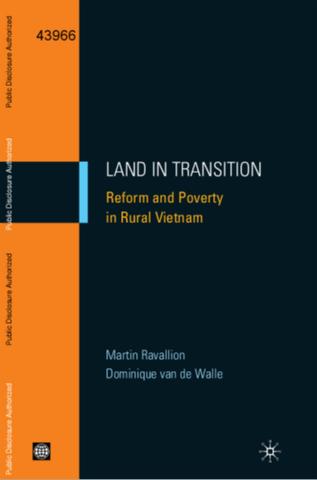Population Pressures, Migration, and the Returns to Human Capital and Land : Insights from Indonesia
Rapid population growth in many
developing countries has raised concerns regarding food
security and household welfare. To understand the
consequences of population growth in a general equilibrium
setting, this paper examines the dynamics of population
density and its impacts on household outcomes. The analysis
uses panel data from Indonesia combined with district-level
demographic data. Historically, Indonesia has adapted to


